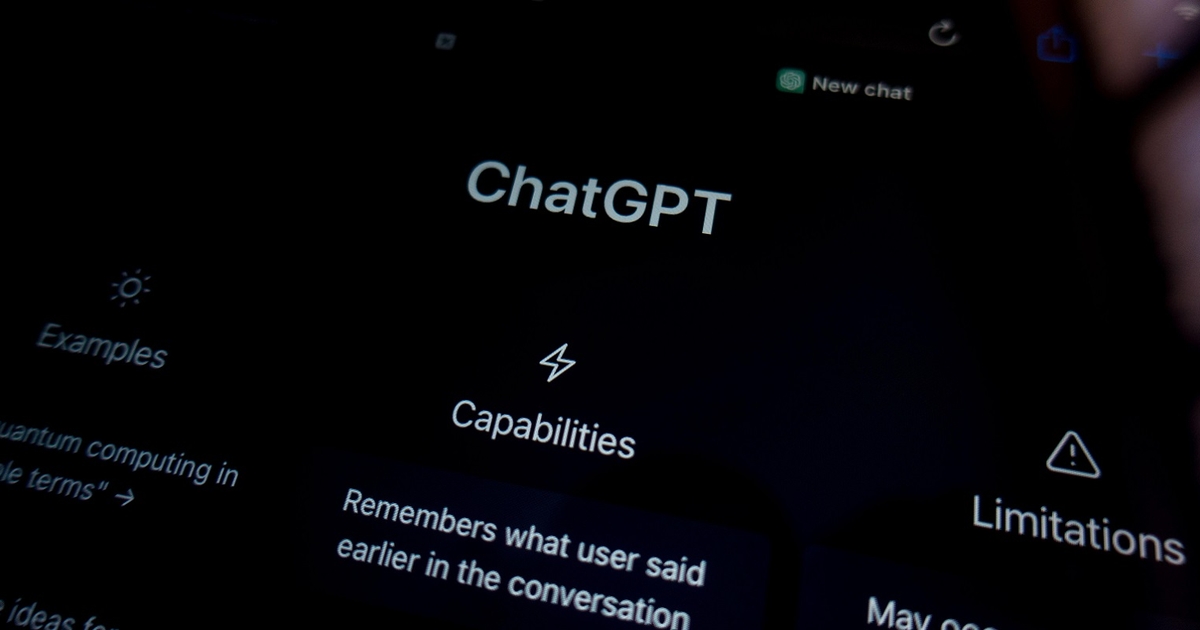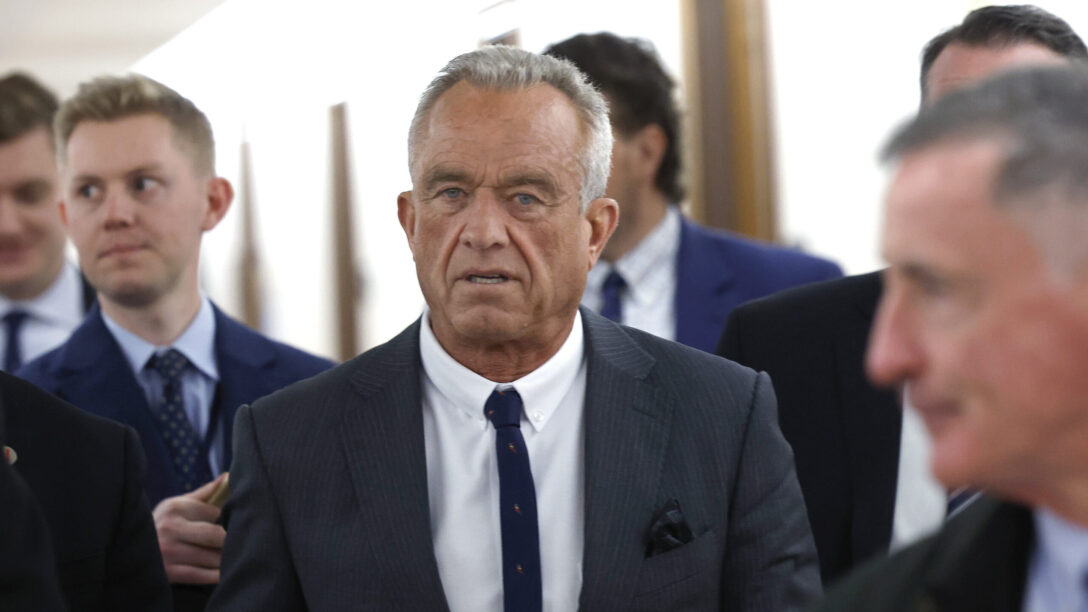FTC Investigates OpenAI: ChatGPT Under Scrutiny

Table of Contents
Concerns Regarding ChatGPT's Data Handling and Privacy
The FTC's investigation into OpenAI centers heavily on concerns regarding ChatGPT's data handling and privacy practices. The commission is scrutinizing how OpenAI collects, uses, and protects the vast amounts of user data fed into its AI models. The worry is that OpenAI's practices may violate various data privacy laws and regulations, including the General Data Protection Regulation (GDPR) in Europe and similar acts in other jurisdictions.
The FTC’s concerns include:
- Lack of Transparency Regarding Data Collection Practices: Critics argue that OpenAI lacks sufficient transparency about how it collects and uses user data. This lack of clarity raises concerns about potential misuse.
- Potential Misuse of Personal Data: The sheer volume of data processed by ChatGPT raises concerns about the potential for misuse, including unauthorized sharing or sale of personal information.
- Insufficient Measures to Prevent Data Breaches: Given the sensitivity of the data processed, ensuring robust security measures to prevent data breaches is paramount. The FTC is likely examining the adequacy of OpenAI's security protocols.
- Compliance with GDPR and Other International Data Privacy Regulations: OpenAI's global reach necessitates compliance with a complex web of international data privacy regulations. The FTC's investigation will likely scrutinize OpenAI's adherence to these regulations.
These data privacy concerns, encompassing user data, data security, and data breaches, are central to the FTC’s investigation and its potential outcomes regarding ChatGPT privacy.
Potential Biases and Misinformation in ChatGPT's Output
Another key area of the FTC's investigation involves the potential for ChatGPT to generate biased or misleading information. The AI model learns from massive datasets, and if these datasets reflect societal biases, ChatGPT's output can inadvertently perpetuate and amplify those prejudices. This raises significant concerns about:
- Algorithmic Bias Reflecting Societal Prejudices: The AI might exhibit biases related to gender, race, religion, or other sensitive attributes, leading to unfair or discriminatory outcomes.
- Spread of Misinformation and Disinformation: ChatGPT's ability to generate human-quality text makes it a potent tool for spreading false or misleading information, potentially with harmful consequences.
- Lack of Mechanisms for Fact-Checking and Verification: Currently, ChatGPT lacks robust mechanisms for verifying the accuracy of its responses, increasing the risk of disseminating inaccurate information.
- Ethical Implications of AI-Generated Content: The ethical implications of using AI to generate potentially biased or misleading content are profound, requiring careful consideration.
These concerns highlight the importance of addressing AI bias and mitigating the risk of misinformation spread by sophisticated AI models like ChatGPT. The FTC investigation into ChatGPT bias is a significant step in promoting ethical AI development.
The FTC's Investigative Powers and Potential Outcomes
The FTC has broad authority to investigate unfair or deceptive business practices. In this case, the FTC's investigation into OpenAI could result in several potential outcomes:
- Cease and Desist Orders: The FTC could issue cease and desist orders requiring OpenAI to halt specific practices deemed unfair or deceptive.
- Financial Penalties: Significant fines could be levied against OpenAI if the investigation reveals violations of data privacy laws or other regulations.
- Mandatory Changes to Data Handling Practices: OpenAI might be required to implement significant changes to its data collection, use, and protection practices.
- Increased Oversight of AI Development: The investigation could lead to increased regulatory oversight of AI development, potentially impacting the entire industry.
The Broader Implications for the AI Industry
The FTC investigation into OpenAI sets a crucial precedent for the entire AI industry. It signals a growing awareness of the potential risks associated with advanced AI models and the need for robust regulatory frameworks. The potential impact on future AI development and regulation includes:
- Increased Scrutiny of AI Models: Expect increased scrutiny of AI models across various sectors, leading to stricter development and deployment standards.
- Development of Stricter Ethical Guidelines: The investigation will likely spur the development and adoption of stricter ethical guidelines for AI development and deployment.
- Enhanced Data Privacy Protections: The investigation could push for more comprehensive and robust data privacy protections for users of AI systems.
- Slowdown in AI Innovation Due to Increased Regulation: While regulation is necessary, it could also potentially lead to a slowdown in AI innovation due to increased compliance costs and bureaucratic hurdles.
Conclusion: The Future of OpenAI and ChatGPT Under FTC Scrutiny
The FTC investigation into OpenAI and ChatGPT highlights crucial concerns regarding data privacy, algorithmic bias, and the responsible development of AI. The potential outcomes of this investigation—ranging from financial penalties to significant changes in OpenAI's operations—will have far-reaching implications for the company, the AI industry, and AI users globally. The investigation underscores the urgent need for robust AI regulation to ensure ethical development and deployment of increasingly powerful AI technologies.
Stay updated on the FTC investigation into OpenAI and ChatGPT and learn more about the implications of the FTC’s scrutiny of ChatGPT and the future of AI. [Link to relevant resource (if available)]. The future of AI hinges on responsible development and transparent regulation, ensuring that these powerful technologies benefit society as a whole.

Featured Posts
-
 Are Stock Investors Prepared For More Market Downturns
Apr 22, 2025
Are Stock Investors Prepared For More Market Downturns
Apr 22, 2025 -
 Trumps Obamacare Defense A Supreme Court Showdown With Potential Impact On Rfk Jr
Apr 22, 2025
Trumps Obamacare Defense A Supreme Court Showdown With Potential Impact On Rfk Jr
Apr 22, 2025 -
 Pope Francis Dies At 88 A Reflection On His Papacy
Apr 22, 2025
Pope Francis Dies At 88 A Reflection On His Papacy
Apr 22, 2025 -
 Deadline Looms Kyivs Decision On Trumps Ukraine Peace Initiative
Apr 22, 2025
Deadline Looms Kyivs Decision On Trumps Ukraine Peace Initiative
Apr 22, 2025 -
 Hegseth Faces Backlash Over New Signal Chat And Pentagon Allegations
Apr 22, 2025
Hegseth Faces Backlash Over New Signal Chat And Pentagon Allegations
Apr 22, 2025
